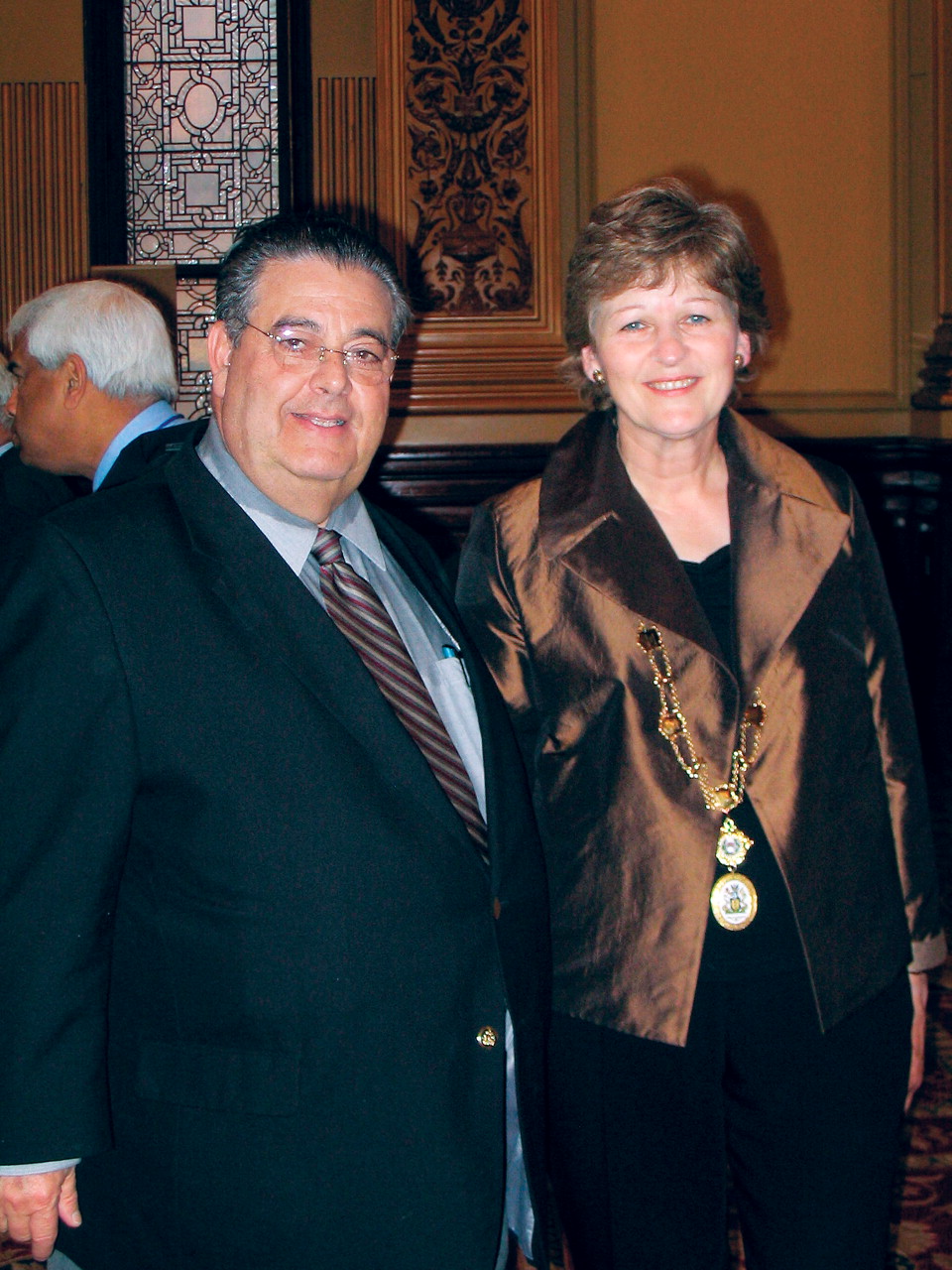British and American Psychiatry: Opportunity for Collaboration
This past summer I led a group of APA members to the annual meeting of the Royal College of Psychiatrists in Glasgow, Scotland. The meeting afforded me the professional and personal honor of getting to know the president of the Royal College, Prof. Sheila Hollins. One outcome of the meeting is that we agreed to work together on various issues of mutual interest and develop joint presentations at each of our annual meetings.
The Royal College has 12,000 members worldwide, with divisions throughout England and in Scotland, Wales, Northern Ireland, and the Republic of Ireland. Joining me at the meeting were our immediate past president, Dr. Steven Sharfstein; our medical director, Dr James Scully; and a number of APA members, including Drs. Sidney Weissman, Ken Busch, Joan Anzia, and David Lynn. Dr. Nigel Bark, also an APA member, joined us in another role as chair of the Pan-American International Division of the Royal College.

APA President Pedro Ruiz, M.D., poses with Prof. Sheila Hollins, president of the Royal College of Psychiatrists, at the college's meeting last summer in Glasgow, Scotland. Joan Anzia, M.D.
Dr. Sharfstein made a presentation on APA's position statement on the interrogation of prisoners (Psychiatric News, June 16). He reviewed the process that took place as the statement was revised, reviewed, and voted on by the Assembly and Board of Trustees. This action served as a stimulus for the Royal College to develop a similar resolution, which was unanimously approved by its members at its business meeting in Glasgow.
Drs. Weissman, Busch, and Anzia made presentations on various aspects of terror and trauma and their effects on individuals and society at large. This presentation emphasized the role of psychiatrists in helping individuals as well as communities heal from terrorist attacks, disasters, and wars that have become all too common throughout the world.
The time I spent at the Royal College meeting brought to the forefront of my attention the many issues that both of our organizations face. Although the American and British health care systems are different, we can learn from each other as we work to achieve and implement reforms in similar areas. Both the Royal College and APA are stepping up efforts to increase the number of medical students who enter psychiatry. The Royal College is also considering ways to increase the total number of medical students, in addition to the increase that will result from the creation of new schools that the U.K. plans to open by 2011.
Medical school education in Great Britain is now a five-year curriculum, and students begin at age 17 or 18. In graduate medical education, the British are making comprehensive revisions to the psychiatry training requirements that are scheduled to go into effect in the near future. Prior to formal training, each psychiatry resident will be required to spend 24 months in six medical areas, which will expand the training length to six years. The British are developing a set of core competencies similar to ours, although the educational systems are quite different. On both sides of the Atlantic, psychiatrists typically complete their training at age 29 or 30.
With regard to continuing medical education, the model that has been developed in the United Kingdom is similar to our model of “lifelong learning,” but there it is called “continuing professional development.” The management of the National Health Service is changing quickly, with more emphasis on the private sector and payment on the basis of outcomes, similar to the “pay for performance” plans now being developed in this country. With so many changes afoot, the British are developing a plan to assess the competency of every physician at five-year intervals. This plan is expected to be far more stringent than the recertification process in this country.
I am grateful to Prof. Hollins and Dr. John Baird, chair of the meeting's Organizing Committee, for their wonderful hospitality in Glasgow. We have a lot to learn from and share with our colleagues in Great Britain. With that in mind, I have appointed a Board of Trustees work group to help us foster a closer relationship with the Royal College throughout the next year, and for years to come. ▪



